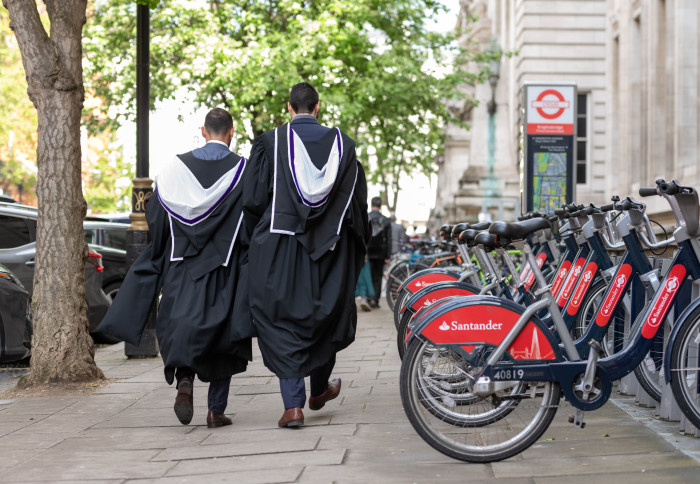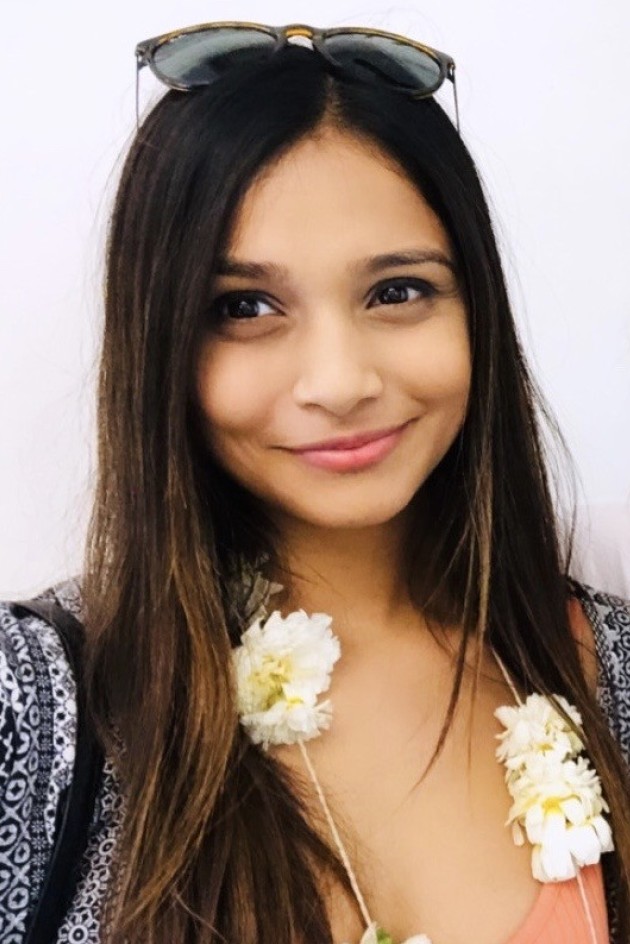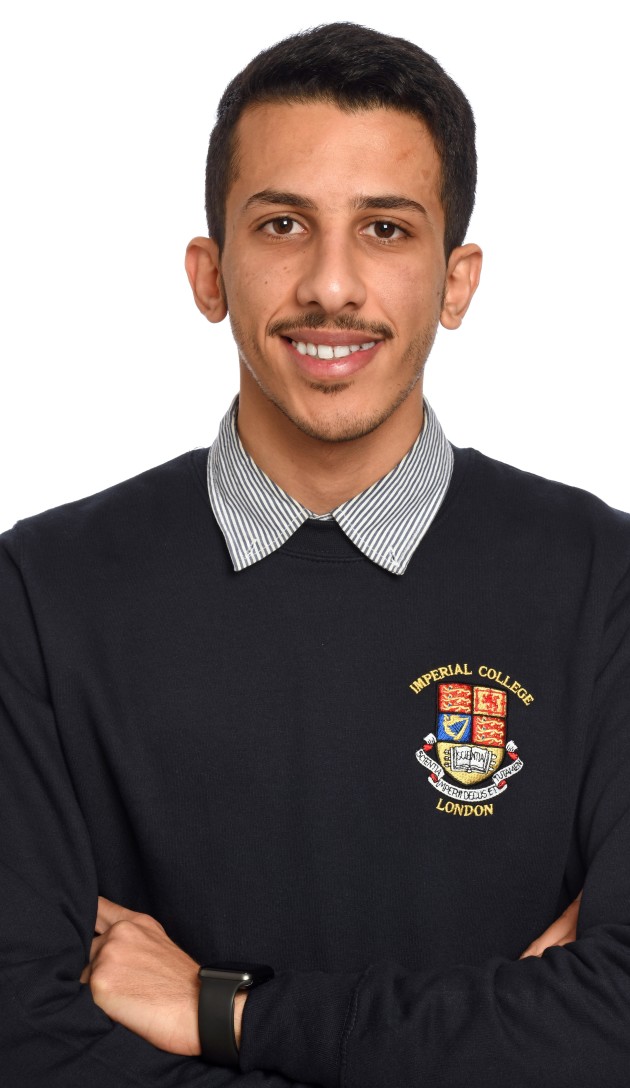Where are they now? Catching up with NHLI alumni

As Imperial welcomes in a new wave of students, we got in touch with some of our former students to hear what they have been up to since graduating.
Harpreet Sahemey, MSc Medical Ultrasound
 What have you been up to since graduating?
What have you been up to since graduating?
Since completing the MSc programme in 2012 I’ve been developing my echocardiography skills further by becoming accredited not only in adult echocardiography, but in paediatrics too. I am currently a Senior Echocardiographer working for Imperial College Healthcare NHS Trust at Hammersmith Hospital. I have been working here for the past eight years. I’m also an examiner for the British Society of Echocardiography and I’m a member of the accreditation committee.
What was the highlight of the programme?
I would say the highlight was actually learning how to acquire the images of the heart and interpreting them - every heart is different!
What would you say to someone considering the programme?
To someone considering MSc Medical Ultrasound I would say be prepared for hard work and self-discipline. The Master’s is an intense academic degree and it will teach you the foundations of echocardiography.
Kelly de Coteau, MSc Genomic Medicine
What are you up to now?
I am completing a 4-year BHF funded PhD studentship with the NHLI studying the effect of non-coding variations in the genome on transcriptional regulation in endothelial cells.
What was the highlight of the programme?
The lab-based module was certainly the highlight of the MSc. It’s a great module that allowed me to apply the techniques that I had previously learned about in the Omics technologies module. Professor Lovett and the team were excellent leads who provided a hands-on experience!
What have you been up to since graduating?
After graduating, I briefly worked for a start-up company before deciding to pursue a PhD. I am roughly halfway through the programme. Although challenging, it’s a stimulating area of research and I am enjoying it.
Hilary Allen, MSc Allergy
 Why did you choose your programme?
Why did you choose your programme?
I chose to undertake the MSc Allergy because I didn’t have the knowledge or experience to treat the patients with allergic disease presenting to my surgery on a daily basis. I recognised Imperial is a world-renowned centre in both clinical and academic allergy medicine. I felt this course would give me the clinical and research skills I required in order to provide the highest standard of care to my patients and it exceeded my expectations.
What have you been doing since completing your MSc?
The MSc qualification afforded me the opportunity to establish a primary care allergy practice, to which other GP colleagues refer. It enabled me to develop relationships with international allergy colleagues and to be appointed to the European Academy of Allergy and Clinical Immunology (EAACI) working group for primary care. My MSc research study was published in an American allergy journal and I am about to embark on a MD to further develop my research study.
What’s been your favourite part of the programme?
I really enjoyed acquiring both research and clinical skills. The opportunity to attend outpatient allergy clinics facilitated clinical application of the knowledge learnt in lectures. I also discovered a hidden passion for research by undertaking a research study in my final year.
Sulaiman Alsaif, MSc Cardiovascular and Respiratory Healthcare
How did you find your year at NHLI? 
I would say it was a life-changing experience, and as might be expected, at times the programme felt demanding and stressful. But, honestly, it was challenging and fun!
What was your favourite part of the programme?
The access to endless opportunities! I think one of the perks of being an Imperial student is the access to various academic, professional, and fun opportunities both within and outside the College.
What are you planning to do next?
Taking advantage of the extra opportunities, and the networking gained through my MSc served as great preparation for the next step in my academic journey, a PhD. And yes, I will be staying at Imperial for the next few years, exciting times!
Ram Pillai, MSc in Genes, Drugs and Stem Cells
 What are you up to now?
What are you up to now?
I’m currently an Associate at a Silicon Valley-based Venture Capital (VC) firm, called 500 Startups. Among the different regional offices worldwide, I work under “500 Durians” which is the regional fund for Southeast Asia - covering the early-stage startup landscape across Singapore, Malaysia, Thailand, Vietnam, Indonesia and Philippines. The leverage I have being a scientist who has crossed over into finance is being able to put on both hats when I screen new companies and go deeper into the fundamentals of these two worlds. Since joining the VC, I know that the cross-over between business and science is what I enjoy and thrive most in. Although, plans to jump back into science aren’t completely lost — I’m still thinking of doing a PhD some day (if I don’t burn myself out doing an MBA first!).
What was the highlight of the MSc programme?
The highlight of my MSc programme would definitely be my secondment to The Francis Crick Institute for my thesis. I’d always wanted to work there, but I never knew if an opportunity would arise. Funnily enough, prior to the opening of the Crick, I stood at the lobby of the building wishing that I would one day be able to work there. I was pleasantly surprised to learn that Imperial’s (and NHLI) connections with institutions like the Crick would offer opportunities to students to stretch beyond the walls of Imperial.
I also had the chance to introduce a dry-lab component to my project — integrating aspects of computer science (where I got to polish my coding skills) into my project by co-developing a novel algorithm to measure and spatially track cells in healthy and diseased states. Most importantly, everyone at the Crick was very open to collaboration and I felt like I was doing a mini-PhD squeezed into eight months.
What have you been up to since graduating?
During the MSc I co-founded a start-up alongside a group of really bright and dedicated folks within Imperial. Our team consisted of undergraduate and postgraduate students, and we all committed to it part-time — I had amazing opportunities to travel to many places like Massachusetts Institute of Technology (MIT) in Boston for competitions and even to Paris for conferences. Upon completion of the MSc, I continued to juggle working with the start-up in the UK, while serving as the lead research and development advisor at an agriculture site in Malaysia. I took frequent flights between London and Kuala Lumpur, but since Covid-19 I found myself staying put in Malaysia — and thankfully now, in a job that I’m passionate about.
What would you say to someone considering the programme?
I’ve already recommended this course to a few undergraduate students I knew at Imperial and even to those elsewhere, two of them even went as far as getting interviews and an offer. The course has truly broadened my horizons and capabilities within what science and research has to offer.
We had a “social engagement” assignment in one of Professor Sara Rankin’s class that required us to break down a complex science topic into an interactive activity. The assignment required us to figure out every aspect of event planning and management, something you’d never think you’d get in a medical course. I fondly remember brainstorming with my teammates whether advertising on the radio was still a thing, and pinning things down to the details like being mindful of choosing an event venue with step-free access when planning for events for people over the age of 60. I think more importantly, the assignment as a whole brought in a creative element within science which is something I don’t think we often do as scientists, or get the chance to at least. More importantly, it teaches us the importance of things like communicating ideas across clearly to people which I now really value, being an explant of science into finance.
Coming to a renowned institution like Imperial warrants every person to do things outside the box and learn things they never thought they would have — and at least, that’s what I got out of this course and my time there.
My final words to someone considering the course is, you’ll be in great hands, surrounded by amazingly passionate and dedicated lecturers and staff that will always be willing to help every step of the way. Shout out to Uta Griesenbach, Sara Rankin, Jane Mitchell, Tristan Rodriguez, Anne Burke-Gaffney, Sarah Fort, and Fouzia Khan!
To hear from more of our students, check out Meet our Students.
For more information on our postgraduate programmes, take a look here.
Article text (excluding photos or graphics) © Imperial College London.
Photos and graphics subject to third party copyright used with permission or © Imperial College London.
Reporter
Miss Lizzie Lomer
National Heart & Lung Institute